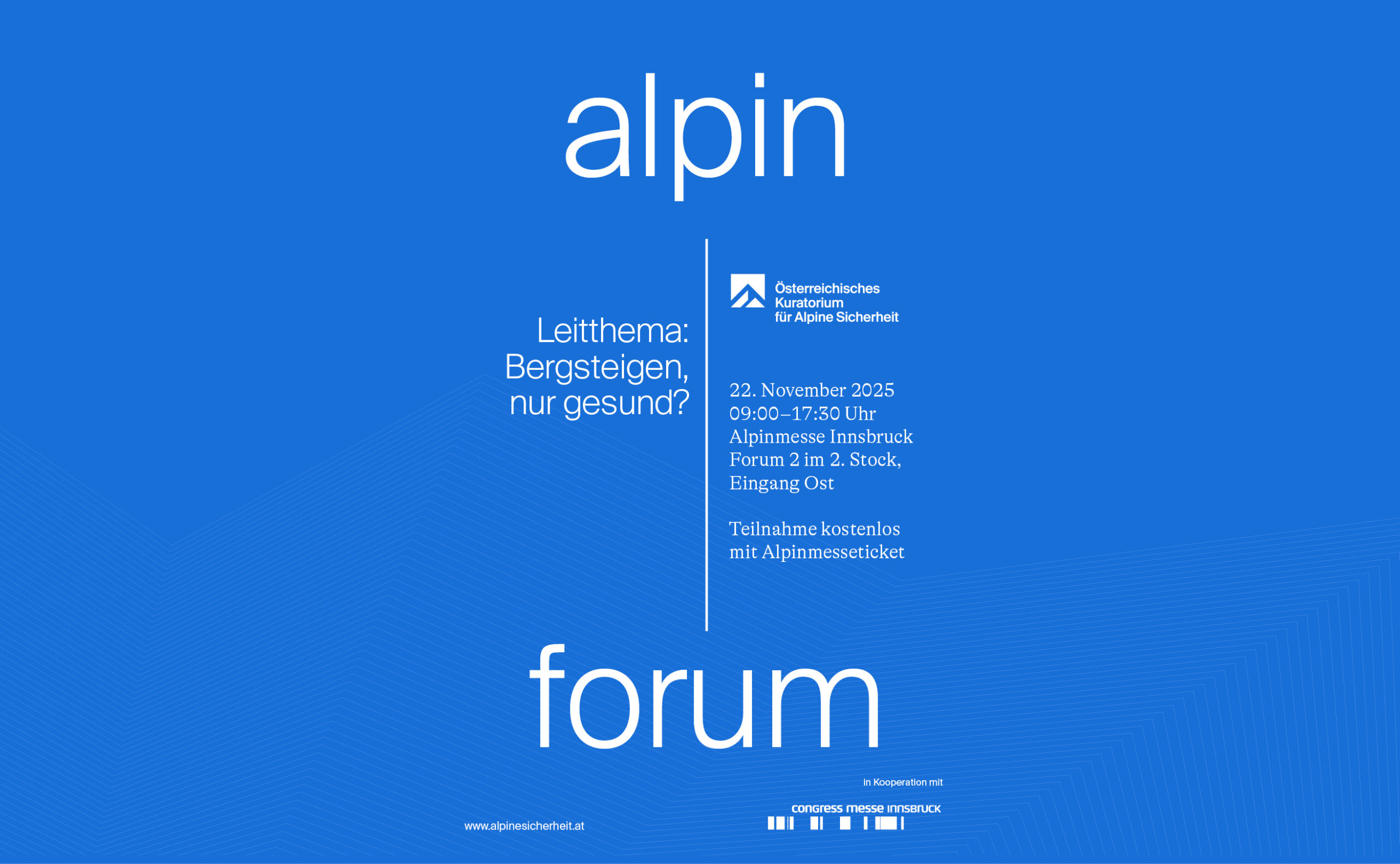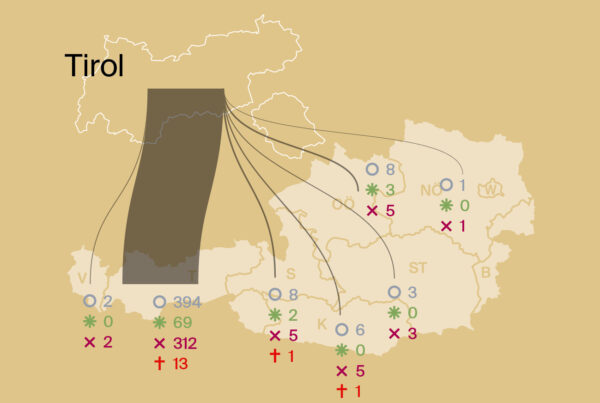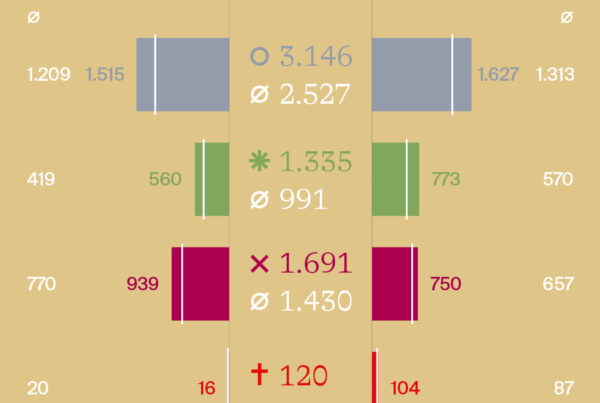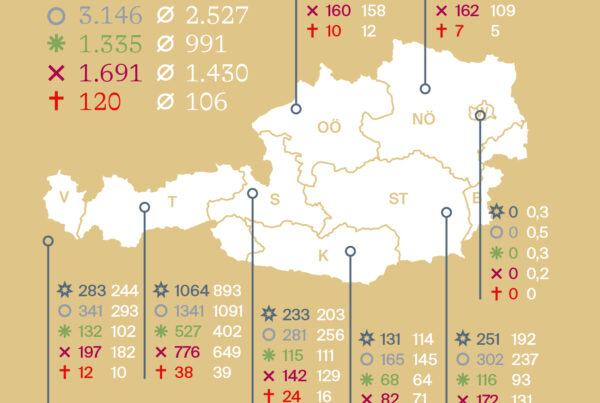
This post is also available in: German Czech Polish
Saturday, November 22, 2025
9:00 to 17:30
Messe Innsbruck, Forum 2 (East Entrance – 2nd floor)
This year, the ÖKAS is once again organizing the Alpinforum as part of the Alpinmesse Innsbruck. The 2025 program under the title “Mountaineering, only healthy?” is something to be proud of. Exciting presentations on four different topics await you. We would be delighted if you were there and took part in the presentations and discussions in large numbers.
Mountaineering, only healthy?
Pressure to perform, excessive demands, doping, more and more rescue missions in summer and winter. Is mountaineering only healthy? This year’s main theme of the Alpinforum takes up current, controversial and hotly debated topics: It is about high-altitude mountaineering, records, drug abuse, addiction, fear and panic, as well as new developments regarding hiking trails and the winter topics of avalanche burial, falls and cold.
BLOCK 1: Tourism, Sport & Ethics – From the 8000ers to the Alps
9:30 to 11:10 a.m.
After the official opening of the Alpinforum by the President of the Österreichische Kuratorium für Alpine Sicherheit, Peter Paal, and a welcoming speech by Governor Anton Mattle, Innsbruck expedition provider Lukas Furtenbach starts the first block with a reality check Everest 2026. As Managing Director and founder of Furtenbach Adventures and multiple Everest climber, he organized the first successful 7-day Everest Flash Expedition in 2025 – not least with the help of the inert gas xenon. He was sure to attract media attention and criticism.
Michael Fries, Head of Anaesthesia and Surgical Intensive Care Medicine at St. Vincenz Hospital in Limburg an der Lahn, who administered the xenon, explains what xenon is all about, how it works in the body and why it is interesting for high-altitude mountaineering.
Philipp Brugger, the Tyrolean specialist for speed ascents and trail running, continues his rapid progress. In 2025, he completed two north face trilogies in one week, which rank among his previous record ascents.
Caught between commerce and values? Urs Hefti, President of the UIAA Medical Commission and member of the Swiss Society of Mountain Medicine, finally poses this question and addresses the sensitive topic of “medication abuse” in mountaineering – and not just in high-altitude mountaineering, but also here in the Alps.
The subsequent panel discussion “And where are the ethics – in the 8000m and here?” will be complemented by mountain and ski guide Hanspeter Eisendle, who will share his many years of experience and his intuition for people.
BLOCK 2: Mountain crazy! What makes mountaineers tick?
11:30 to 12:50
The second block is psychological. Hanspeter Eisendle asks why we mountaineers are the way we are and sheds light on the “pull of the masses” towards adventure. Katharina Hüfner, a specialist in psychiatry and psychotherapeutic medicine, goes one step further and tries to find out when the joy of exercise turns into addiction – e.g. in combination with eating disorders.
Alexis Zajetz, psychologist, psychotherapist and sports scientist, explains what triggers fear or even panic when mountaineering and how you can deal with it. He explains the difference between fear and panic and presents helpful communication methods and a psychological first aid kit.
In addition to the speakers, Richard Obendorfer, who has completed over a million meters of altitude in each of the last five years, has been invited to the subsequent discussion round “What is ‘normal’ in the mountains?”.
BLOCK 3: Mountain hiking: Accidents, trail classification and digital helpers
14:00 to 15:05
After the ethical and psychological questions of the morning, the afternoon will focus on data, facts and figures, concrete projects and exciting experience reports.
Susanna Mitterer will kick things off together with the Alpine Police: they will provide an insight into the ÖKAS/BMI Alpine Accident Database and analyze the high number of fatal accidents while hiking. There are numerous causes for emergency situations and accidents: from overestimating one’s own abilities and health problems to natural hazards and unreliable geodata as well as different difficulty ratings. The AlpsWatch project of the Tyrolean Mountain Guides Association is addressing the issue of natural hazards. Managing Director
Lucia Felbauer, Klaus Pietersteiner and Christoph Kovacs from the Landscape Service of the Province of Tyrol present the second project on the topic of hiking: DIGIWAY pursues the goal of bundling reliable geodata from the Euregio and making it publicly accessible, for example also for common tour portals, whose data currently comes from user-generated content or OpenStreetMap and is not always reliable. In addition, DIGIWAY has developed comparability between the different classification systems for hiking and mountain trails in the Alpine countries and even within Austria. Walter Würtl, alpine scientist, expert and mountain guide, will then address this major topic, as the multitude of different terms, colors and categories inevitably leads to confusion and uncertainty among hikers.
BLOCK 4: Winter – Avalanche and other dangers!
15:30 to 17:15
The fourth and final block builds a bridge to the cold season. It starts with Gerhard Mössmer, mountain guide, expert and member of the ÖAV’s Mountain Sports Department. In his contribution, he uses sober figures to dispel the misconception that the greatest danger on a ski tour or variant is posed by avalanches. Falls and cold are often underestimated causes of accidents that deserve a closer look.
But what if you are caught in an avalanche and completely buried? Peter Plattner, expert, mountain guide and editor-in-chief of analyse:berg, shows what you can do to survive such a complete burial based on an evaluation of ÖKAS accident figures carried out for the first time.
Just like Stephan Birkmaier, a specialist in anaesthesia and intensive care medicine, who was caught in an avalanche on a ski touring vacation in Norway, swept away and completely buried. He survived and gives a very personal account of this experience, his thoughts, feelings, lessons learned and the unspeakable cold.
Jürg Schweizer, head of the Institute for Snow and Avalanche Research SLF in Davos, concludes by summarizing more than 30 years of avalanche research: He reports on important findings, the change in avalanche knowledge but also on many unanswered questions. His personal avalanche experiences during this period show that, as a proven expert, he was not always able to successfully put the latest knowledge into practice.
Program & Schedule
Alpinforum 2025 – Mountaineering, only healthy?
Climbing Everest with Xenon, extreme training on the local mountain, excessive demands on the high-altitude trail
Moderation: Robert Wallner & Peter Plattner
09:00-09:10: Opening & Welcome
Opening of the Alpinforum 2025 by ÖKAS President Peter Paal and welcome by Governor Anton Mattle.
09:10-09:30: Tyrol, the land in the mountains – The mountain as part of our identity. | Anton Mattle, Governor of Tyrol
09:30-11:10: Topic block #1:
Tourism, sport & ethics – from the 8000m peaks to the Alps
09:30-09:50: Everest – the end of the adventure? | Lukas Furtenbach
09:50-10:05: Xenon in high-altitude medicine – facts and fiction | Michael Fries
10:05-10:25: North Face Trilogy | Philipp Brugger
10:25-10:40: Caught between commerce and values – medication use in (high-altitude) mountaineering | Urs Hefti
10:40-11:10: Keynote speech & panel discussion: And where are the ethics – in the 8000s and here? | P. Paal, P. Brugger, L. Furtenbach, U. Hefti, M. Fries, H. Eisendle
11:10-11:30: Break
11:30 – 12:50: Topic block #2:
Mountain crazy! What makes mountaineers tick?
11:30-11:50: Why we mountaineers are the way we are – An attempt at an empirical inventory | Hanspeter Eisendle
11:50-12:10: “Mountain addiction” – Where does the fun end? | Katharina Hüfner
12:10-12:30: Respect, fear, panic… & measures Aleksis Zajetz
12:30-13:00: Discussion – What is “normal” on the mountain? | H. Eisendle, K. Hüfner, A. Zajetz, R. Obendorfer
13:00-14:00: Lunch break
14:00 – 15:05: Topic block #3:
Mountain hiking: Accidents, trail classification and digital helpers
14:00-14:10: Hiking accidents: Figures, data and facts from the alpine accident statistics | Susanna Mitterer & Alpine Police
14:10-14:30: Launch of the AlpsWatch project – natural hazard monitoring via app | LR Mario Gerber, Michael Rosendorfer, Andreas Mayr, Martin Rutzinger, Thomas Rabl
14:30-14:45: DIGIWAY – Geodata for safety on the mountain | Lucia Felbauer, Klaus Pietersteiner & Christoph Kovacs
14:45-15:05_ Trail classification for mountain hiking – a key to greater safety? | Walter Würtl
15:05-15:30: Break
15:30-17:15: Topic block #4:
Winter – avalanches and other dangers!
15:30-15:50: Avalanche? Crash, cold and more! The underestimated causes of accidents on ski tours and variants | Gerhard Mössmer
15:50-16:10: How to survive a complete burial | Peter Plattner
16:10-16:30: The reality of a total burial – A personal report from Norway | Stephan Birkmaier
16:30-17:15: When the snow fails – and avalanche research | Jürg Schweizer
17:30: Farewell and end of the event
Moderation:
Robert Wallner was “Alpine Public Prosecutor” in Innsbruck from 1998 to 2000. Until his retirement, he was Chief Public Prosecutor in Liechtenstein. He is a member of the FIS Legal Committee and the Disciplinary Committee of the Austrian Ski Association. He has been an expert member of the ÖKAS for many years.
Peter Plattner is an alpine expert, specialist journalist, mountain guide and long-standing ÖKAS member.







